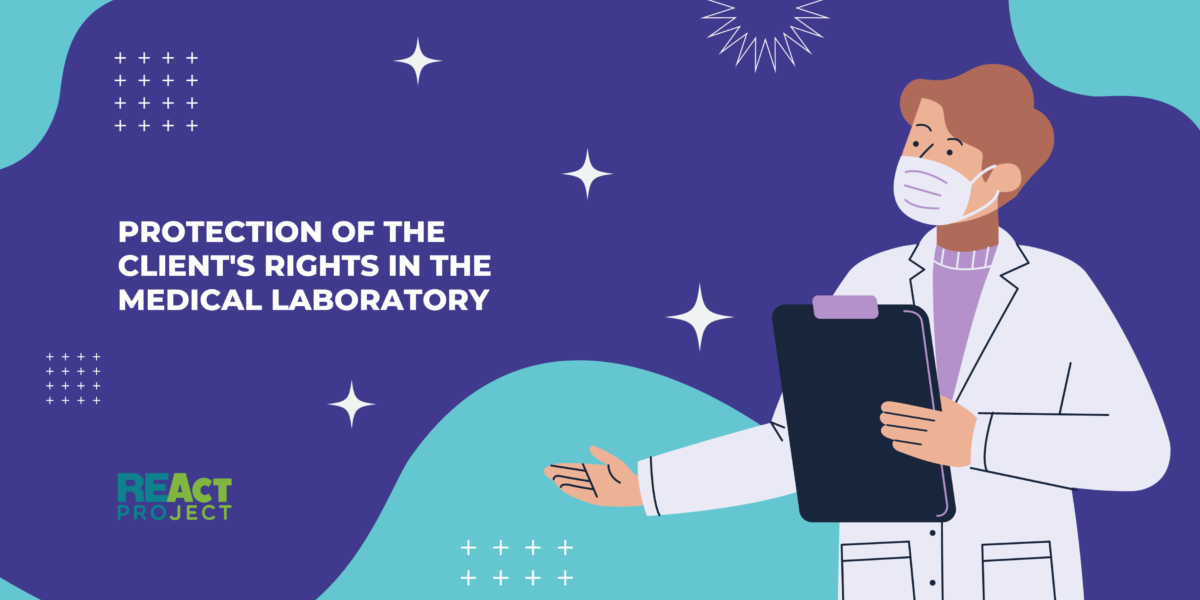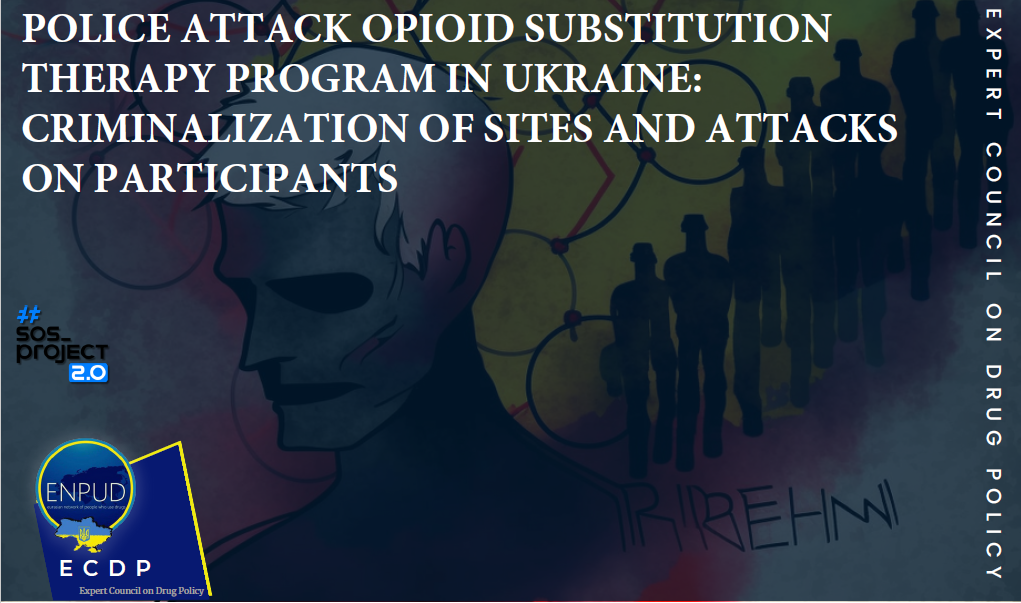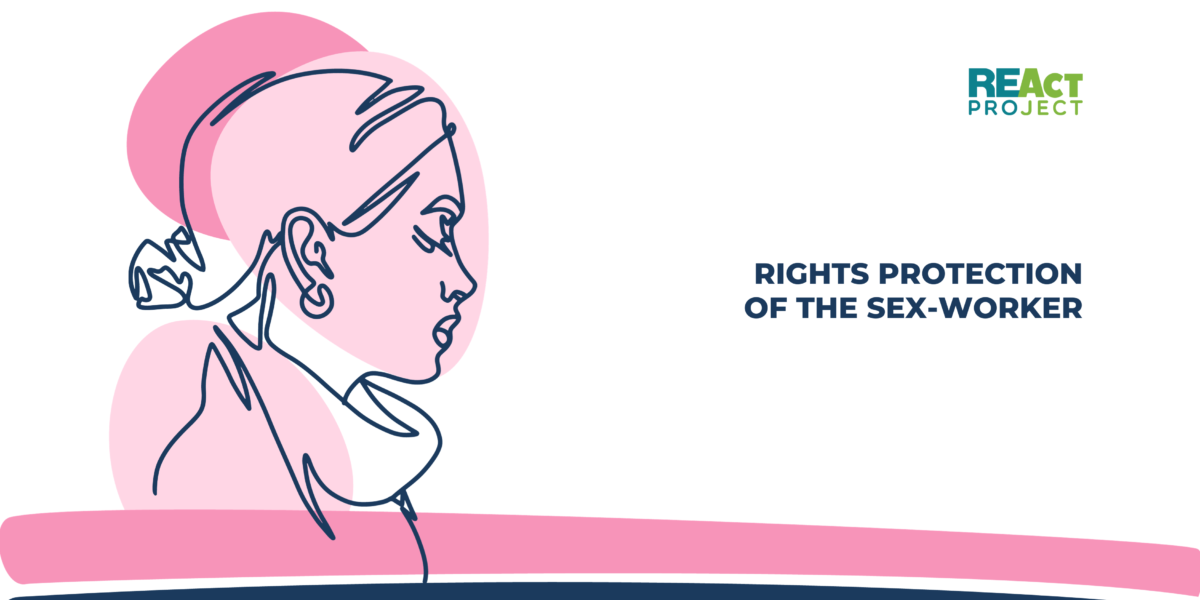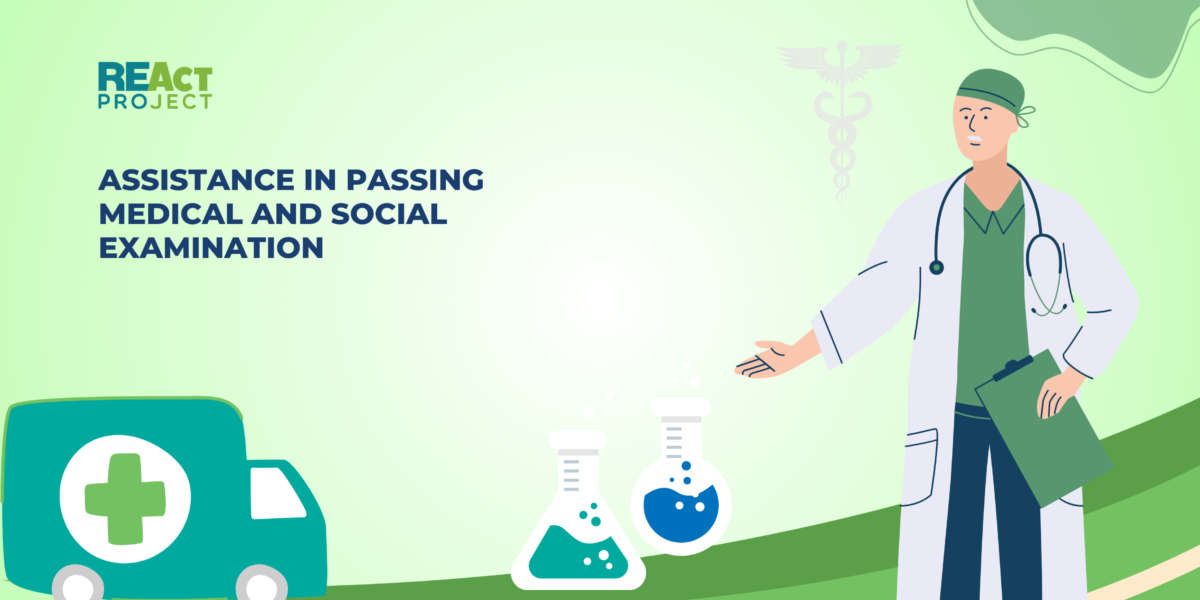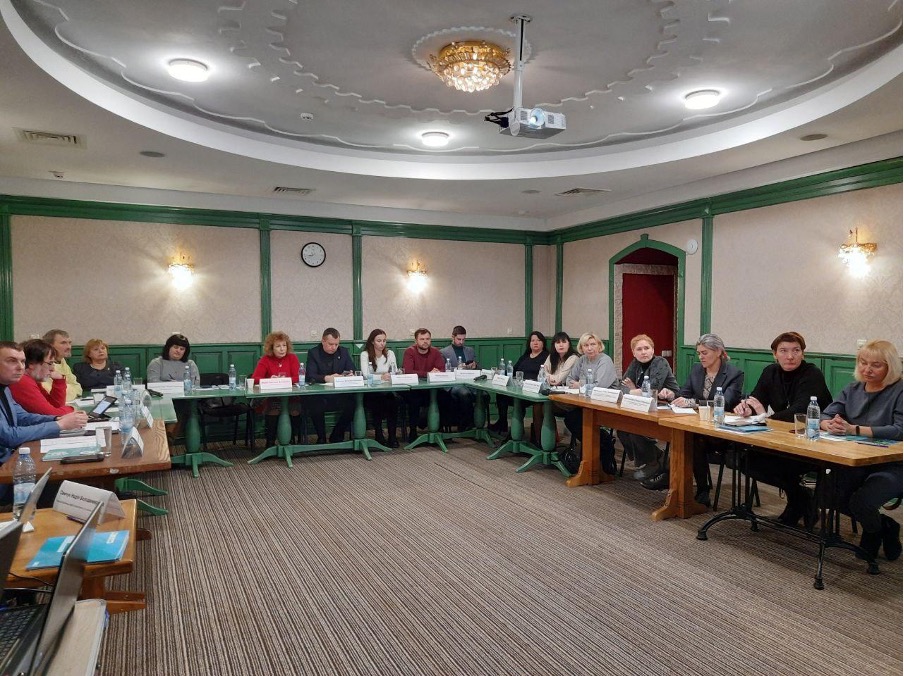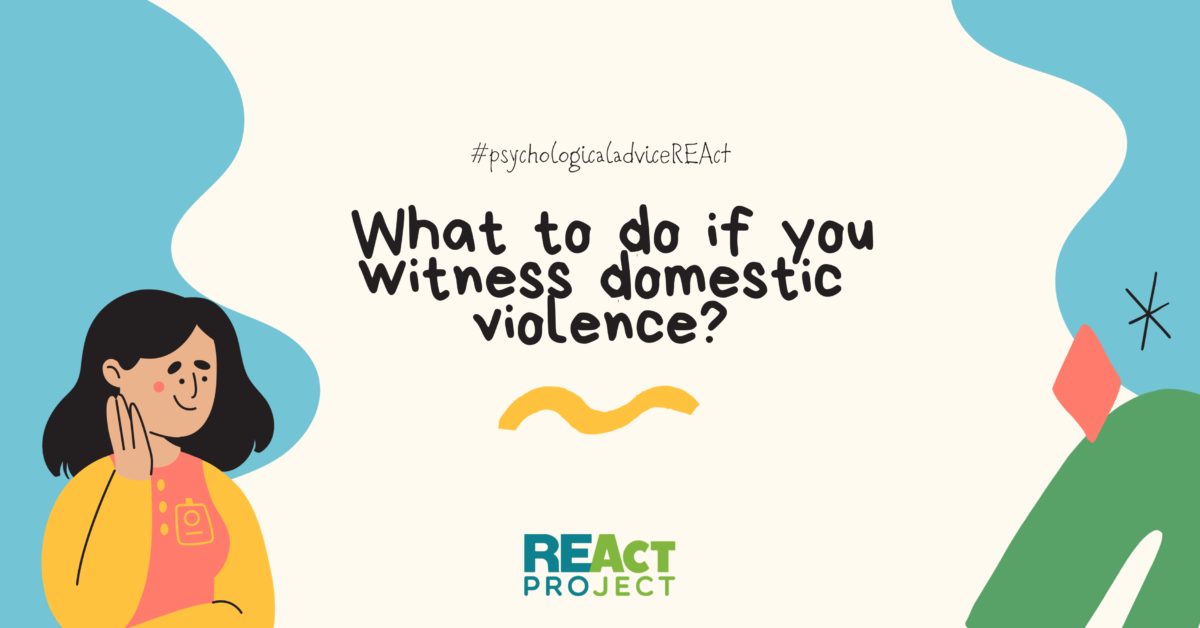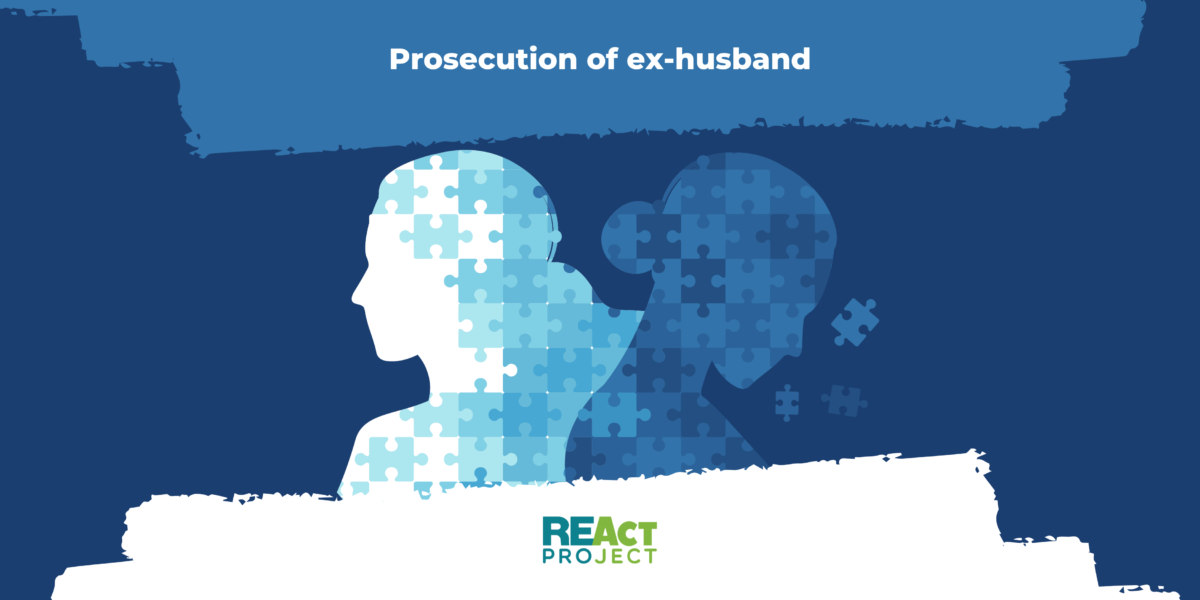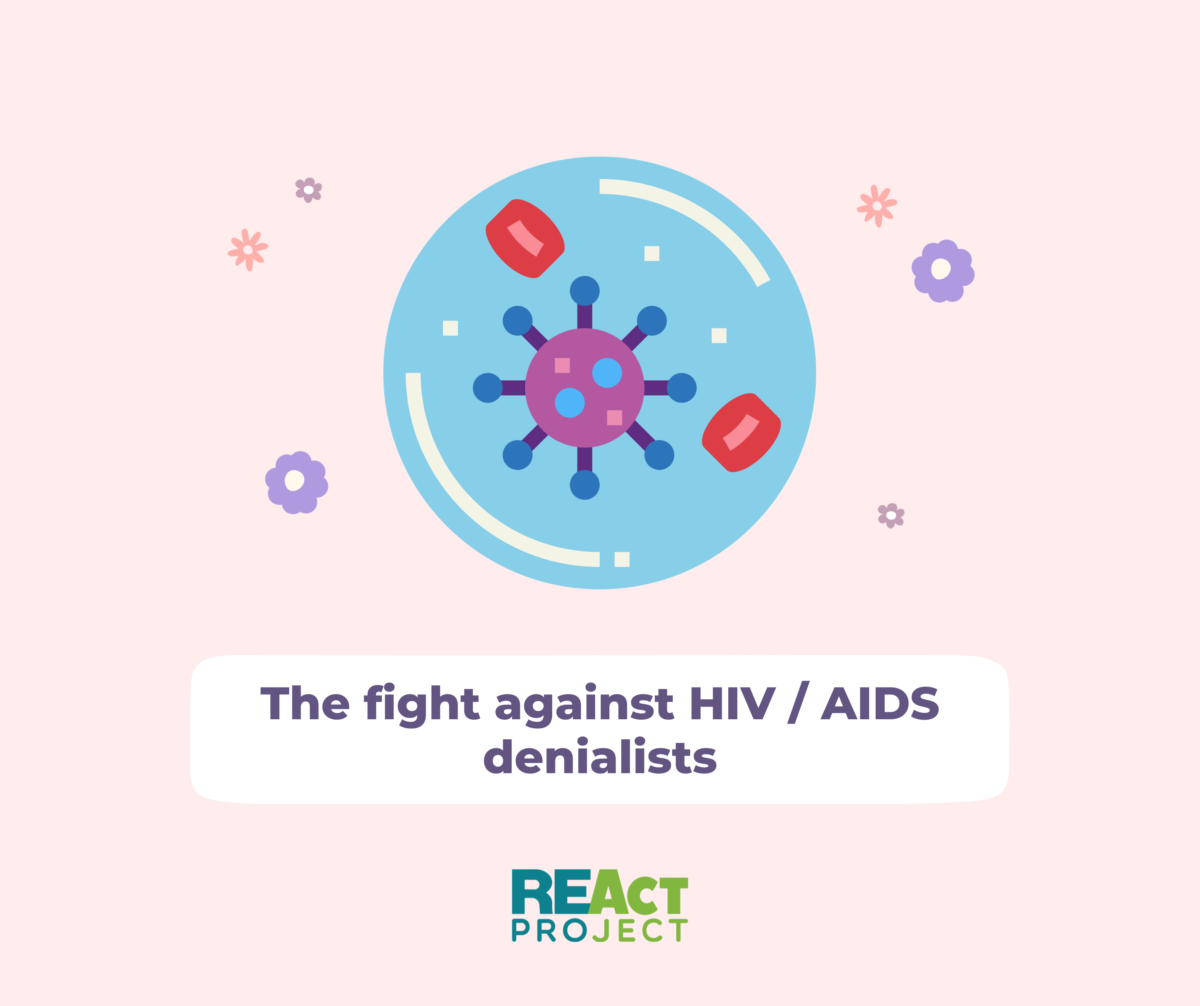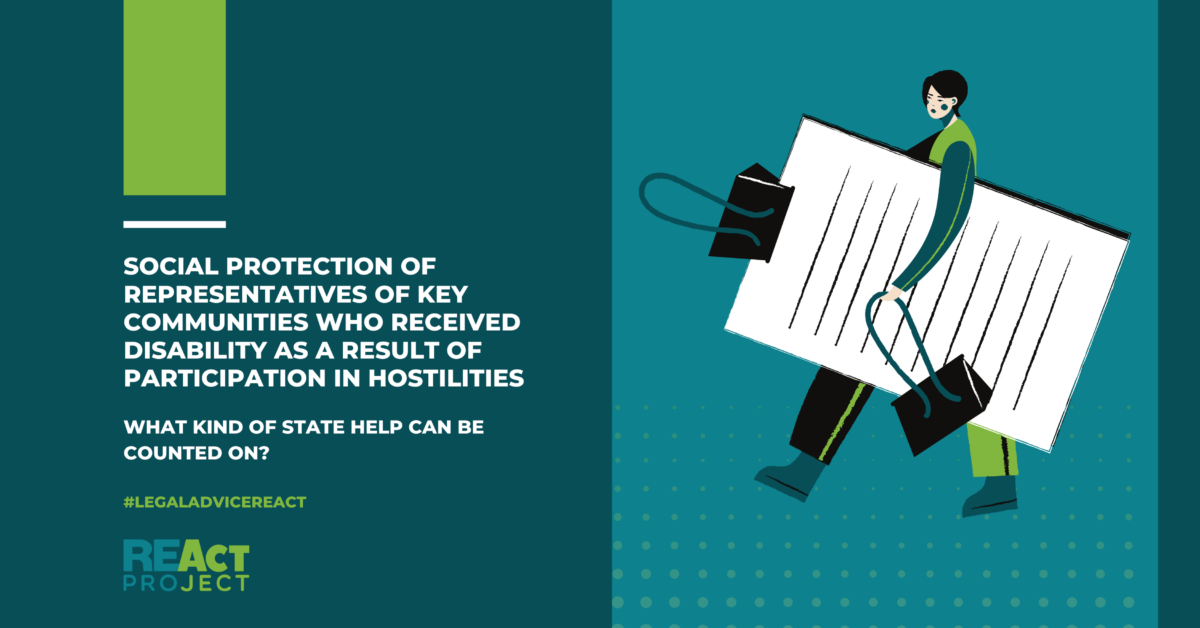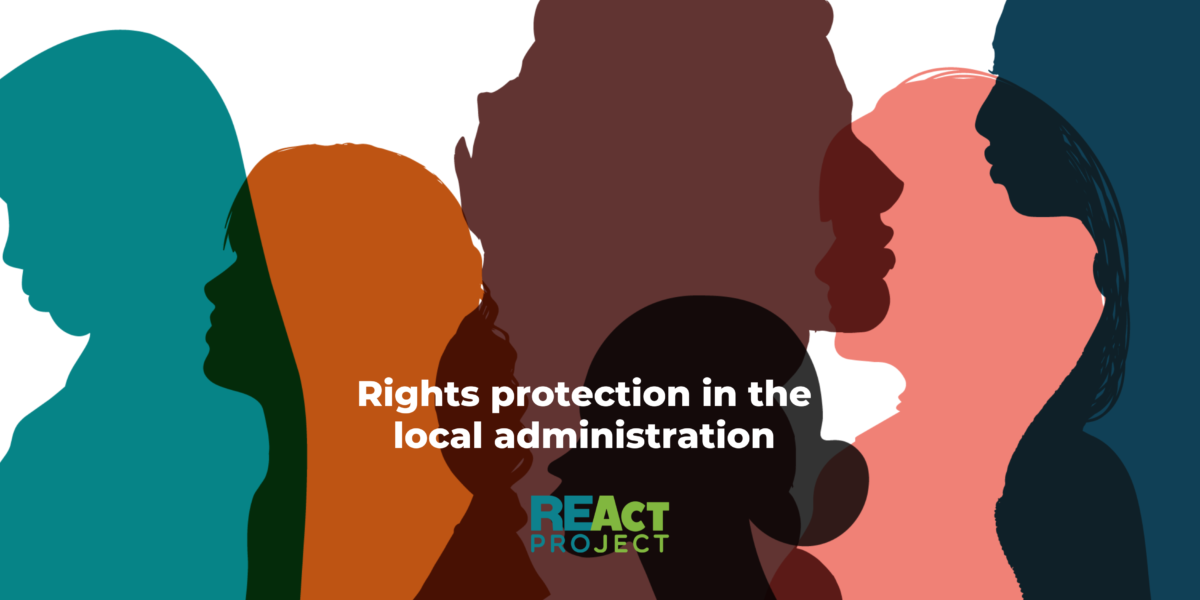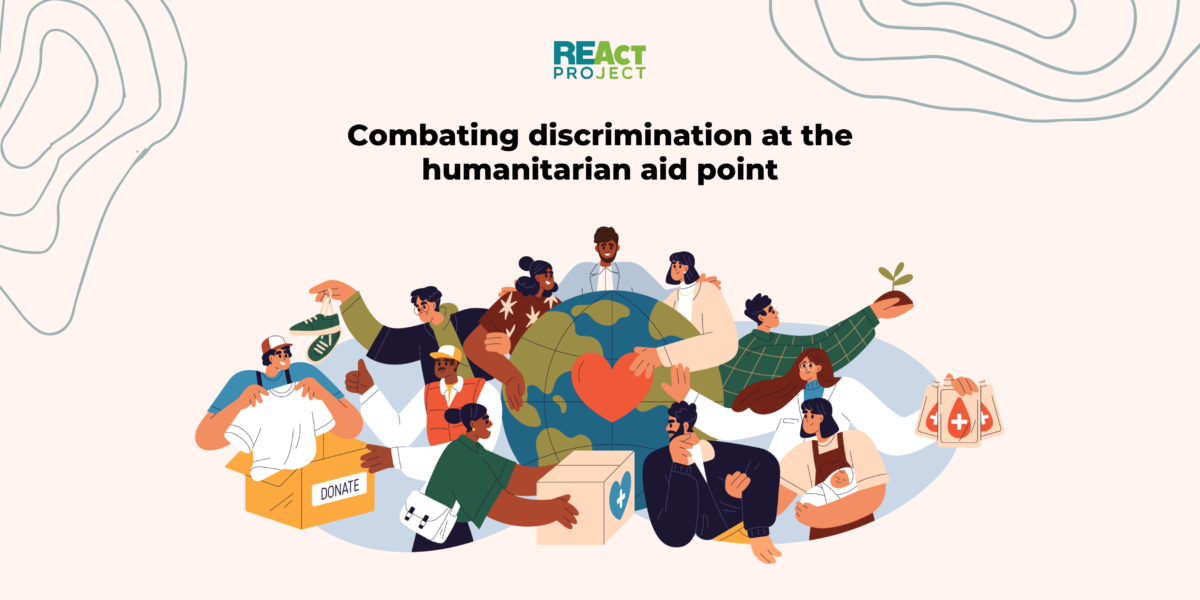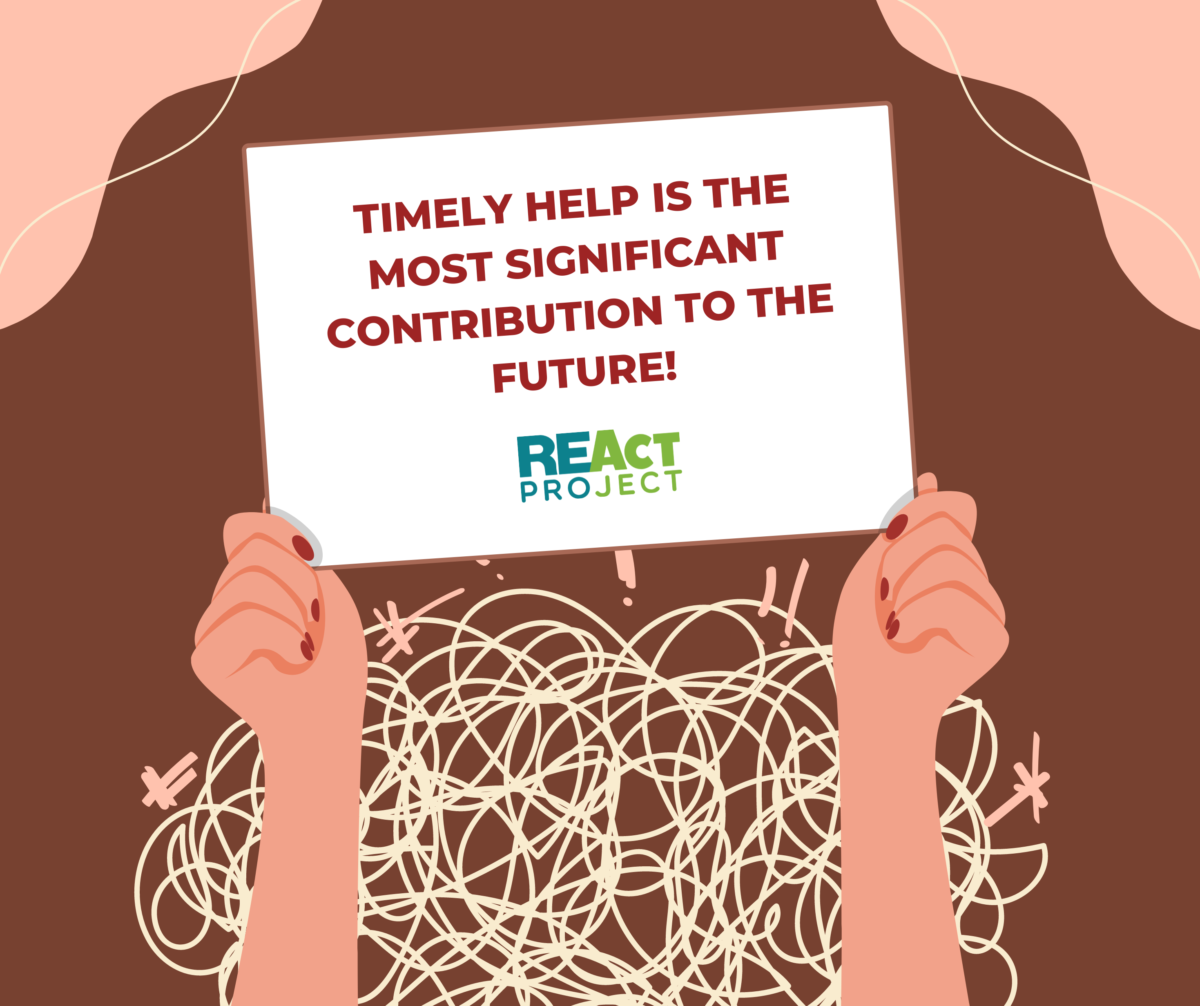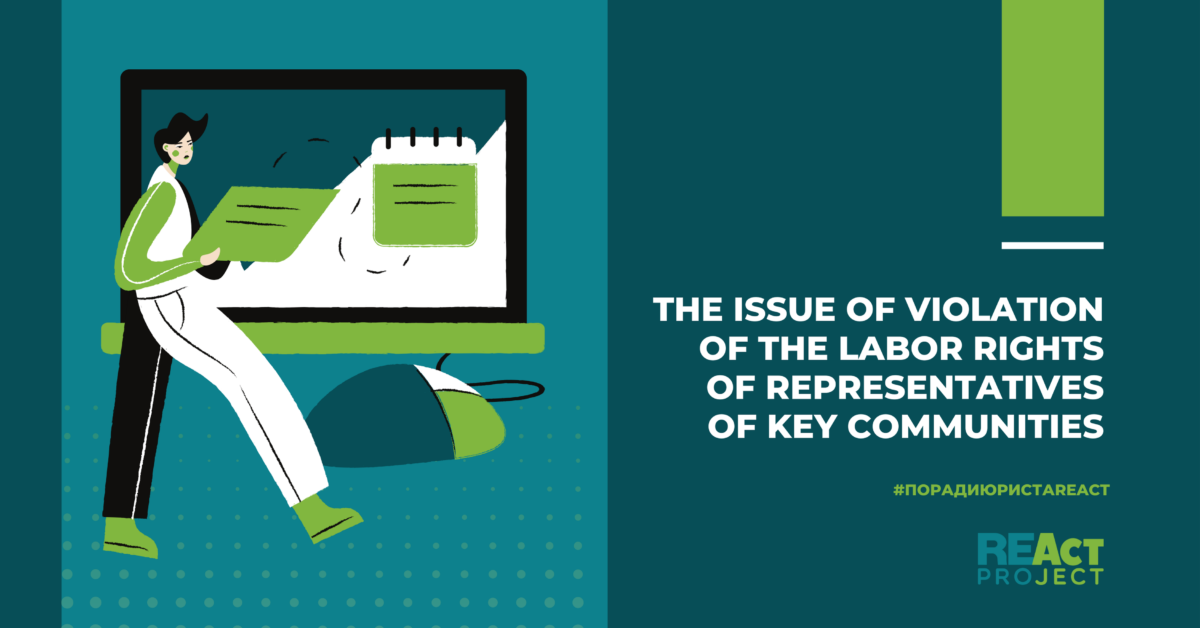During the analysis of cases of violations of the rights of the REAct project clients, it is noticeable that clients from such communities as PLHIV, PLTB, PWID, OST patients, and MSM repeatedly faced their rights of work or employment being violated, which prevented them from having a decent standard of living and socialization. Illegal oppression aimed at forcing people to quit their jobs hurt the social security of the community representatives and their families.
When analyzing the cases of such violations in more detail, two main types of violators can be identified – the management or administration of the institution and the employees of the institution, who put the workers from the key communities under psychological pressure and moral violence precisely because of the belonging of the latter to the respective communities. When one party of such harassment (mobbing) is the management (the employer), it can also be economic pressure and discrimination. At the same time, some of the employees from the communities feel unprotected, especially when it comes to having a positive HIV status (unreasonable requirement to provide a certificate of the HIV test results), TB treatment, or receiving OST, as well as when the employer is a private person.
So, let’s examine the issue below.
Firstly, obtaining official employment in the institution where the community representative works is strongly recommended, as it allows the person to use appropriate protection mechanisms in case of any violations. The Labor Code of Ukraine dated 10.12.71 No. 322-VIII establishes several guarantees regarding the employees’ rights, which are protected by law, namely:
Article 2-1 of the Labor Code of Ukraine, “Equality of labor rights of citizens of Ukraine,” defines that: “in Ukraine, any discrimination in the field of labor, in particular the violation of the principle of the equality of rights and opportunities, direct or indirect restriction of the rights of employees depending on … state health, disability, suspicion or presence of HIV/AIDS, … or other signs unrelated to the nature of work or the conditions of its performance”. Also, the state guarantees non-disabled citizens permanently residing in the territory of Ukraine a free choice of the type of activity and legal protection against unjustified refusal of employment and illegal dismissal. It is forbidden to request additional documents not indicated by the law (however, when hiring, the labor law does not demand other certificates about HIV presence).
According to the definition of the Labor Code of Ukraine, mobbing (harassment) is a systematic (repeated) long-term and deliberate action or inaction of the employer, individual employees, or a group of employees of the work team, which is aimed at humiliating the honor and dignity of the employee, their business reputation, including the purpose of acquiring, changing or terminating their labor rights and obligations, manifested in the form of psychological and economic pressure, in particular with the use of electronic communications, creating a tense, hostile, offensive atmosphere for the employee, including one that forces them underestimate their professional suitability. Mobbing is a separate type of offense against an employee.
At the same time, one should know that the forms of psychological and economic pressure, in particular, are defined as:
- creating a tense, hostile, offensive atmosphere about the employee (threats, such as “if you don’t quit on your own, then we’ll fire you like a drug addict with the police”; ridicule, such as “you’re somehow not like normal people”; slander, such as “he can steal goods”; disparaging remarks, the behavior of the threatening, intimidating, humiliating nature and other ways of bringing the employee out of their psychological balance);
- unjustified negative separation of the employee from the team or his isolation (non-invitation to meetings and meetings in which the employee, in accordance with local regulations and organizational and administrative acts, must participate, preventing him from performing his work function, preventing the employee from entering the workplace, transferring the workplace in places unsuitable for this type of work);
- inequality of opportunities for education and career growth;
- unequal pay for work of equal value performed by employees of the same qualifications;
- unjustified deprivation of part of the employee’s payments (bonuses and other incentives);
- unjustified, uneven distribution of the workload and tasks by the employer between employees with the same qualifications and labor productivity who perform work of equal value.
Individuals from communities who consider they have been mobbed (harassed) have the right to:
- file a complaint with the State Labour Service, which implements the state policy in the field of supervision and control over compliance with the labor legislation;
- file a lawsuit with the court regarding the recognition of the harassment facts and their elimination;
- receive compensation for the damage caused by mobbing in the amount of expenses incurred by the person during treatment (payment for the damage caused by mobbing is possible if the fact of its commitment is confirmed on the grounds of the court decision that has come into force).
The question arises what the best way is to do it. We recommend backing up the complaint with evidence to make it more complicated for the violator to avoid the punishment. At the same time, proof that can help prove the fact of mobbing can be:
- official documents (orders, directives);
- complaints and statements to the State Labor Service from the person affected by the violation;
- testimony of witnesses (colleagues, clients);
- audio, photo, and video recording of the facts of violations that the victim may commit.
At the same time, a complaint to the State Labor Service of Ukraine can be sent in paper and electronic form (a scanned copy with a signature) to the address – dsp@dsp.gov.ua or on the page https://dsp.gov.ua/forma-dlia-podannia-elektronnykh-zverne/
It should be noted, as the practice shows, even a preventive conversation with the management of the institution where the violation had occurred concerning the possibility of filing a complaint with the State Labor Service of Ukraine, which can impose a significant fine in case of the confirmation of the violations, can have a quality effect on the mobbing of a community representative.
And what to do for those who work unofficially? It will be more challenging. Proper evidence will be required from the victim for the preliminary recognition of the actual employment relationship between them and the institution (the employee), which is not so simple and requires an established procedure. Therefore, we strongly recommend you insist on official employment whenever possible.


